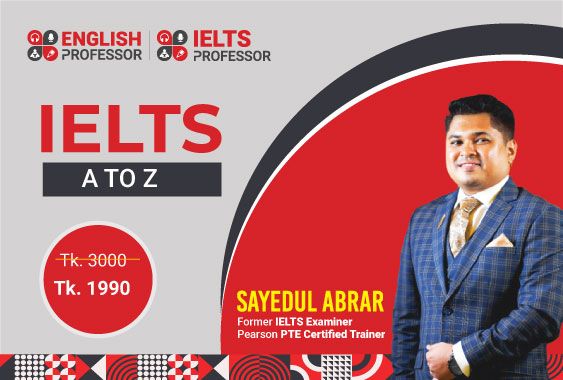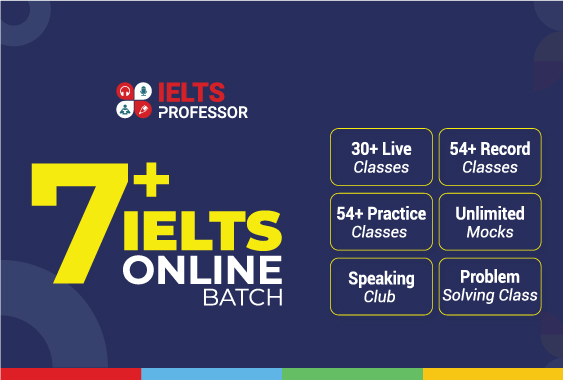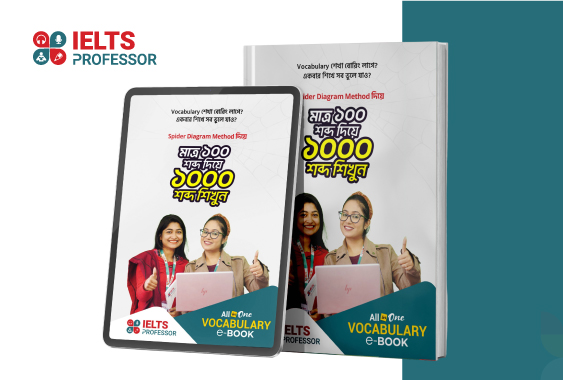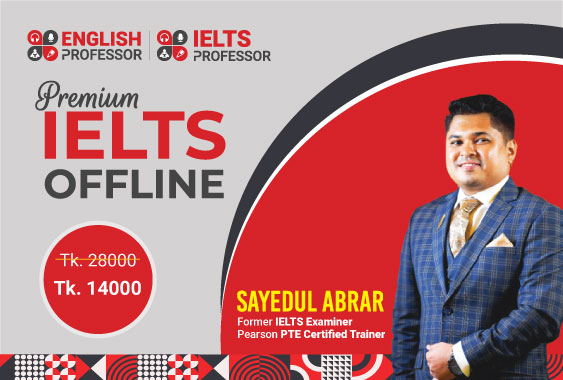
The International English Language Testing System (IELTS) is
one of the most important exams for students planning to study abroad,
particularly in English-speaking countries. For Bangladeshi students for Study Abroad, a good
IELTS score can open doors to prestigious universities and scholarship
opportunities. However, achieving a high score on the IELTS exam requires more
than just knowing English—it demands strategic preparation, dedication, and a
deep understanding of the exam’s format and requirements.
In this article, we will discuss 8 tips for scoring high
on the IELTS exam. These tips are not just theoretical; they are practical
strategies tailored to help Bangladeshi students overcome common challenges
they face. From financial constraints to cultural adjustments, we will look at
how you can successfully navigate the IELTS exam preparation process.
Throughout the article, we’ll include real-life stories of Bangladeshi students
who have excelled in the IELTS, offering inspiration and actionable advice.
The IELTS exam can often feel like an insurmountable
challenge, especially with its demanding Listening, Reading, Writing, and
Speaking sections. Yet, with the right guidance and a structured study plan,
you can improve your score and feel confident walking into the exam. Whether
you are taking the test for the first time or re-taking it to improve your
score, this article will provide you with valuable insights to help you
succeed.
1. Understand the IELTS Exam Structure and Format
Before diving into specific preparation tips, it's crucial
to familiarize yourself with the structure of the IELTS exam. The test is
divided into four main sections: Listening, Reading, Writing, and Speaking.
Understanding the format will help you approach each section with confidence
and avoid unnecessary surprises on exam day.
Listening Section: This section consists of four
recordings, each followed by a set of questions. The recordings range from
conversations to lectures, and you must answer a series of questions while
listening.
Reading Section: This consists of three passages, and
you must answer multiple-choice questions, complete sentences, or match
headings with paragraphs.
Writing Section: The writing section has two tasks.
Task 1 requires you to describe a visual, such as a graph or chart, while Task
2 asks you to write an essay on a given topic.
Speaking Section: This section is a face-to-face
interview with an examiner. You will be asked a variety of questions on general
topics, followed by a more in-depth discussion on a given subject.
By understanding the structure of each section, you can
begin tailoring your study routine to focus on your weaker areas. For example,
if you find the Listening section particularly challenging, allocate extra
practice time to listening to English podcasts, watching English news, and
doing IELTS Listening practice tests.
2. Create a Realistic Study Plan
One of the most important aspects of scoring high on the
IELTS exam is consistency. Create a study plan that allows you to dedicate time
every day to each section of the exam.
Hypothetical Story: Take, for instance, a Bangladeshi
student named Tanveer, who was preparing for the IELTS exam while juggling his
university studies. He set aside 2 hours every evening for IELTS preparation
and divided the time equally among all four sections of the exam. Tanveer also
included practice tests in his plan every weekend. By sticking to this routine,
he not only improved his score but also felt less stressed during the exam.
When creating your study plan, make sure it is realistic and
manageable. It is essential to set specific goals for each week, such as “I
will complete two full Reading practice tests by Sunday” or “I will review 20
new vocabulary words every day.” Consistency is key to progress.
3. Focus on Improving Vocabulary
A rich and varied vocabulary is one of the cornerstones of
scoring high on the IELTS exam. In both the Writing and Speaking sections, your
ability to use a wide range of vocabulary will be assessed.
Real-Life Example: Shaila, a Bangladeshi student
aiming to study in the UK, realized she was struggling with the Writing section
of the IELTS exam. Her vocabulary was limited, which made her essays sound
repetitive. To improve, Shaila started reading English newspapers, watching TED
Talks, and noting down new words she encountered. She then practiced using
these words in sentences to remember them better. Shaila’s vocabulary improved
significantly, and she scored higher on the Writing section.
In addition to reading and listening to English content,
make sure to practice using the new words in both your writing and speaking.
The more you use them in your daily life, the more natural they will become
during the exam.
4. Practice Time Management
Time management is essential, particularly for the Reading
and Writing sections. The Reading section has 40 questions, and you must
complete them in 60 minutes. In the Writing section, Task 1 and Task 2 each
have time limits that you must adhere to.
Tip: During your practice tests, simulate exam
conditions by setting timers for each section. This will help you become
accustomed to answering questions within the time constraints and improve your
overall time management skills.
5. Enhance Your Listening Skills
The Listening section of the IELTS can be challenging,
especially for non-native speakers. The key to excelling in this section is
consistent practice.
Hypothetical Example: Imran, a student from Dhaka,
struggled with understanding different accents during his IELTS practice tests.
To improve, he started listening to various English audio materials, including
BBC Radio, podcasts, and even YouTube videos with different accents. Imran also
listened to the same recording multiple times, pausing to note down important
details. His practice paid off, as he scored highly in the Listening section on
his exam day.
By exposing yourself to different accents and listening to
English content daily, you can significantly improve your ability to understand
spoken English, even in an exam setting.
6. Improve Your Writing Skills
In the Writing section, it's important to be clear, concise,
and well-organized. Task 1 requires you to summarize information, and Task 2
requires you to express your opinion on a topic.
Real-Life Example: Fahim, a student from Chittagong,
found Task 1 challenging because he didn’t know how to structure his response
properly. To improve, he started writing short summaries of graphs and charts,
focusing on main trends and comparisons. Fahim also reviewed sample essays for
Task 2 and practiced writing his own essays under timed conditions. By
regularly practicing, Fahim became more confident in writing well-organized
responses.
7. Prepare for the Speaking Section
The Speaking section is a face-to-face interview, so it’s
natural to feel nervous. However, with regular practice, you can build
confidence.
Hypothetical Story: Arifa, a student from Sylhet, was
afraid of making mistakes while speaking. To overcome this, she started
recording herself speaking on various topics. She then listened to the
recordings to identify areas of improvement. Arifa also practiced speaking with
her friends and teachers, discussing common IELTS topics. By the time she took
the exam, she felt much more comfortable speaking in English.
Practicing with friends, teachers, or even recording
yourself can help you become more comfortable with speaking English. Focus on
fluency and coherence, not perfection.
8. Stay Calm and Confident During the Exam
On exam day, it’s essential to stay calm and focused. Stress
can negatively affect your performance, especially in the Speaking section.
Tip: Arrive at the exam center early to give yourself
plenty of time to relax. During the test, take deep breaths and approach each
section with a positive mindset.
Summary
Scoring high on the IELTS Test Exam is a challenge, but with the
right preparation and strategies, it is entirely achievable. The 8 tips we’ve
discussed—from understanding the exam structure to staying calm on exam
day—will help you build a strong foundation for success. Consistent practice,
time management, and focused improvement in vocabulary and speaking are
essential components of a winning strategy.
FAQs: Frequently Asked Questions
- How
much time do I need to prepare for the IELTS exam?
- Ideally,
2-3 months of consistent preparation will give you enough time to review
all sections and improve your skills.
- What
is the best way to practice for the IELTS Listening section?
- Listen
to a variety of English audio sources, including podcasts, radio shows,
and YouTube videos. Practice under timed conditions.
- How
can I improve my IELTS Writing skills?
- Focus
on organizing your thoughts clearly, practicing summarizing graphs, and
writing essays on common IELTS topics.
- Is
the IELTS exam difficult for Bangladeshi students?
- The
IELTS can be challenging, but with consistent practice, a good study
plan, and focused effort, Bangladeshi students can score well.
- How
can I improve my IELTS Speaking skills?
- Practice
speaking in English every day, record yourself, and participate in
discussions with others.
- Can
I prepare for IELTS while working or studying?
- Yes,
create a study plan that fits your schedule and allocate time for
practice each day.
- How
can I reduce stress before the IELTS exam?
- Practice
relaxation techniques, get enough sleep, and arrive early to the exam
center.
- What
should I do if I don’t score well on the IELTS exam?
- Review
your performance, identify weak areas, and focus on improving them in
your next preparation cycle.
- How
can I improve my IELTS vocabulary?
- Read
newspapers, books, and watch English media. Keep a vocabulary journal and
practice using new words.
- Can
I take the IELTS exam multiple times?
- Yes,
you can retake the IELTS exam as many times as needed, but keep in mind
that there are costs associated with each attempt.
By following these tips and staying consistent, Bangladeshi
students can achieve their desired IELTS scores and open doors to exciting
academic opportunities worldwide. Good luck!














